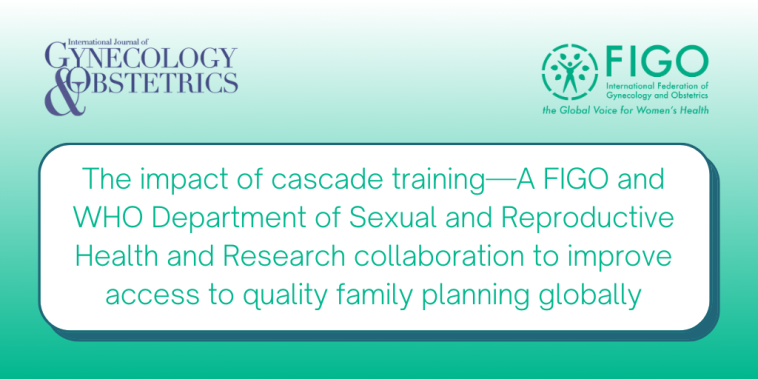WHO and FIGO’s collaborative triumph in family planning training model

In a transformative collaboration spanning from 2016 to 2022, the World Health Organization's Department of Sexual and Reproductive Health and Research (SRH) and FIGO have joined forces to enhance family planning care on a global scale.
The project aimed to tackle the unmet need for family planning and improve service quality by increasing awareness and utilization of WHO's best practice tools and guidelines on contraceptive use.
A key methodology employed in this impactful initiative was the cascade training model. Through a series of regional and national workshops, this model facilitated the dissemination of up-to-date WHO guidelines and tools for contraceptive use among national obstetrician/gynaecologist (OBGYN) societies in participating countries. This approach proved to be not only cost-effective but also adaptable to the unique factors of each country, fostering multidisciplinary training and ensuring in-country ownership and sustainability.
The objectives of this collaboration included:
- Increasing awareness of and utilization by OBGYNs of the latest WHO recommendations for family planning/contraceptive use.
- Increasing the number of OBGYNs providing family planning/contraceptive information and services.
- Encouraging engagement of OBGYNs in moving forward the family planning agenda in the participating countries.
The project unfolded across two phases. The initial phase, from 2016 to 2018, engaged 10 countries in the Africa region and 12 in the Middle East and Mediterranean region. The subsequent phase, from 2020 to 2022, expanded its reach to seven more countries in the South-East Asia region and Francophone West Africa region.
The detailed insights and findings of this collaborative initiative are available in the full paper published in the International Journal of Gynecology & Obstetrics here.